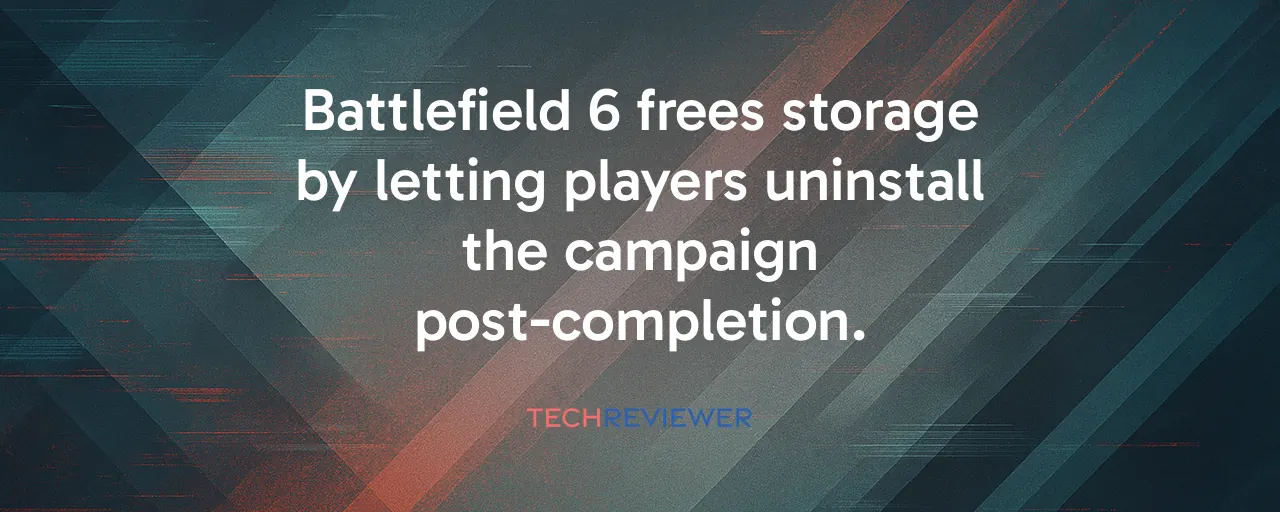Freeing Up Your Drive With One Click
Battlefield 6, launched on October 10, 2025, hit the ground running with over 747,000 players on Steam in just 24 hours, outpacing Call of Duty's all-time record. Among its standout features is a bold choice: once you finish the nine-mission campaign spanning Africa, North America, and Europe, the game swaps the usual 'continue' button for an uninstall prompt. This pop-up lets players ditch the campaign's 13 GB of data to make room for other games, a move that's both practical and divisive. For anyone juggling a packed 667 GB PlayStation 5 drive, this feels like a lifeline. But it also raises questions about how we value single-player stories in an era dominated by multiplayer modes.
Why Storage Matters More Than Ever
Modern AAA games are storage hogs. Titles like Call of Duty balloon past 100 GB, with some configurations nearing 300 GB, while Battlefield 6's full install hits 80 GB. With consoles offering limited space (PS5's usable 667 GB fills fast with just two or three big games), players face tough choices. Keep Red Dead Redemption 2 or make room for the latest shooter? EA's solution lets you keep the 55 GB base game for multiplayer while shedding the campaign's extra weight. This modular design, where components like campaign or high-resolution textures can be managed separately, reflects a growing industry push to ease storage pain points.
A Tale of Two Approaches
Battlefield 6's approach shines when compared to Call of Duty's clunky system. In Call of Duty Modern Warfare 2019, players wade through a maze of packs, such as Campaign Pack, Spec Ops, and Remastered, often unsure what's needed for single-player. One player reported frustration with a large launcher requirement before even selecting modes, highlighting the complexity of the installation process. Battlefield 6, by contrast, offers clear in-game menus. After completing the five-hour campaign, a player might spend additional time chasing challenges through mission select, then uninstall 13 GB with one click, keeping multiplayer intact. Another skipped the campaign entirely, cutting the initial download to 55 GB and jumping straight into matches. These cases show Battlefield's focus on clarity and player control, while Call of Duty's complexity highlights the value of intuitive design.
The Bigger Picture of Modular Gaming
EA's design isn't just about saving space; it signals a shift toward modular gaming. By splitting assets into manageable chunks, developers let players tailor installs to their needs, such as skipping 4K textures on a 1080p screen or ditching the campaign for multiplayer. Yet, some players worry this devalues single-player modes, suggesting studios see them as one-and-done experiences. Others praise the autonomy, appreciating how EA respects their storage constraints. Beyond player choice, modular systems could cut environmental impact by reducing repeated downloads, a concern as data centers strain under gaming's bandwidth demands. With game sizes likely to keep growing, Battlefield 6's approach could set a standard for the next 3-5 years.
What's Next for Game Design?
Battlefield 6's uninstall feature is a small but telling step in tackling storage woes. It's not perfect, as some players find component choices confusing, and multiplayer still demands hefty space. But it shows developers listening to players fed up with bloated installs. Looking ahead, expect more games to adopt modular designs, possibly with smarter systems that predict what you'll play and manage assets automatically. For now, EA's move gives players breathing room, whether they're chasing campaign achievements or diving into online battles. As storage limits clash with ever-larger games, these innovations keep the focus where it belongs: on playing, not managing disk space.
